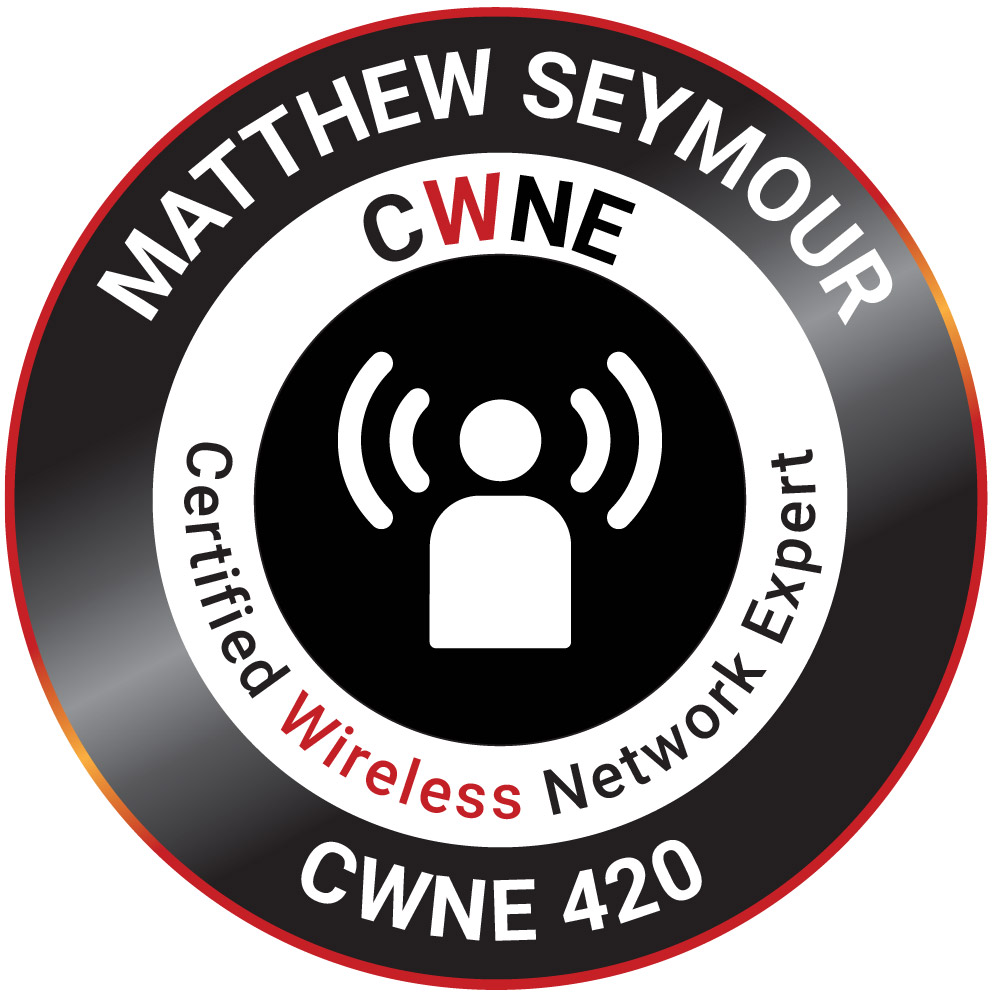Recently I’ve been on a bit of a certification binge, gathering ACCP, ACMP, and ACSP from Aruba, CCSA from Check Point and I was very excited to achieve the expert level certification from CWNP. I am now CWNE #420 (yes I know….)
For a long time I considered a lot of IT certifications to be… a bit thin, maybe not worth the paper they’re written on…. that sort of thing. I thought I had good reasons for this but now I think I misunderstood what that certification meant. So what do I think now?
Anyone in the UK is probably familiar with the MOT. The annual road worthiness test cars over three years old are subjected to. A well serviced car should always sail through but just because your car passes the MOT, doesn’t mean it’s actually road worthy, or even safe.
What you’re getting is a snapshot of a moment in time when everything appeared to be ok. It doesn’t mean you can just ignore everything for another year. If the brakes don’t seem right, you’ll get ’em checked.
Before I fall too far down this analogy, what’s my point?
Most IT certifications are awarded after an exam that tests knowledge and understanding as best as possible. What’s very hard to test is an individual’s ability to apply that knowledge…. experience.
I have met people who were well qualified, with all the appropriate IT certifications who, despite this, just couldn’t fix the problem, design the thing, make it work. Just like the MOT, having the certification alone doesn’t guarantee anything.
Certification plus experience is a great combination. Quite a few certification paths suggest you should have a few years experience under your belt before you start. Someone who has been working in a field for a few years and has achieved the relevant certification shows much more than a newbie who’s crammed for the exam.
Certification is a great way to learn a product. You might have been working with Aruba ClearPass for several years, as I have, but maybe you’ve never touched Onguard. To pass the exam you need to learn about the whole product, even the bits you don’t use day to day.
Certification without experience still has value, but less value imho. Some people are just good at exams. They can cram. They can learn the correct answers. They can remember enough, for long enough, to get through. That doesn’t prove they can take that knowledge and apply it appropriately, but it might just give the edge if they’re up against someone with neither experience nor certs. At least it shows some drive and interest.
Just as the MOT certificate hopefully means the car is actually roadworthy, IT certification should tell you someone understands the principles and concepts of the product. If it turns out they don’t, you’ll probably discover that pretty quickly.
For many years I was looking after too many things to really get to grips with everything. I became very good at working out how to make something work, doing that, and then forgetting about it.
Personally I’ve found studying for certification exams to be a great way to focus the mind. To dig into products that previously I might have skimmed over, things I’ve never understood but could make work I now have a much deeper knowledge of. That’s important when they stop working…. or you need to justify to someone why you should be doing this thing and being paid well for it.
That’s now what I consider the IT certs I’ve achieved to be all about. They’re a framework for learning something focused on a technology or specific product and then validating that.
The further down a track you find interesting, the more rewarding it is to get the achievements.
As everyone who’s been granted CWNE status will tell you, it represents a lot of work – not just learning to pass exams but actively working in the field and gaining experience.
Quite apart from anything else the gentle ego massage of passing an exam doesn’t get old.
